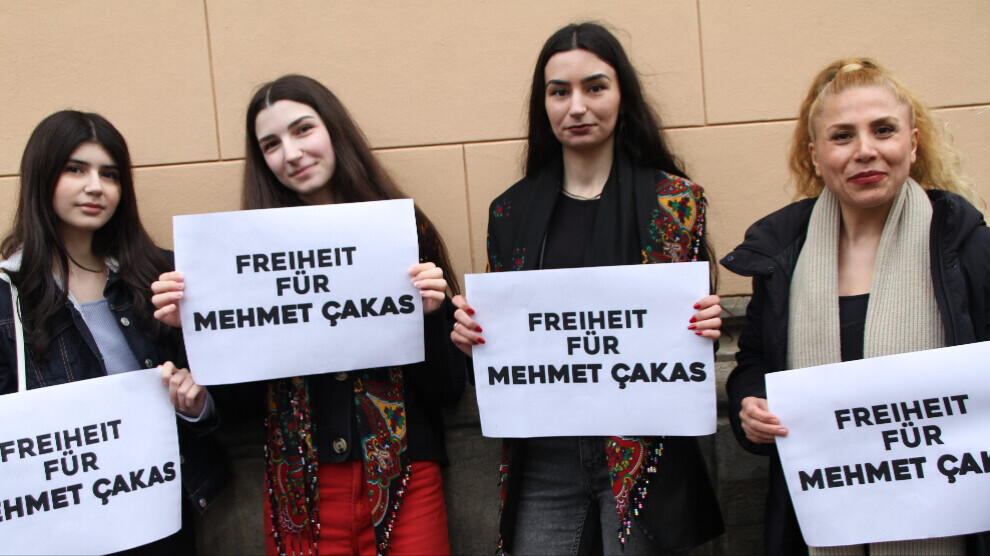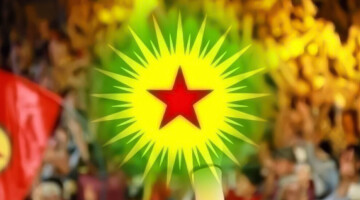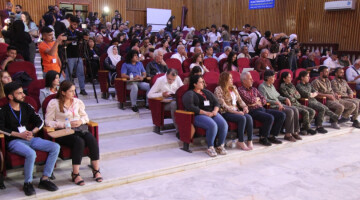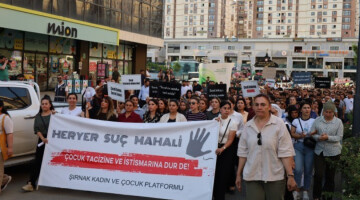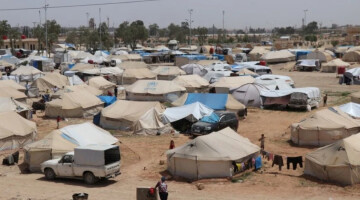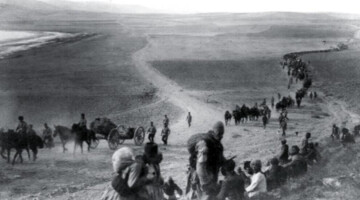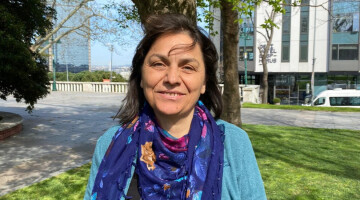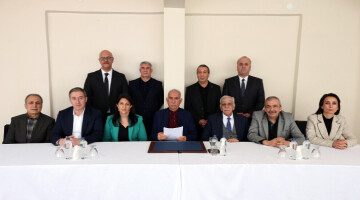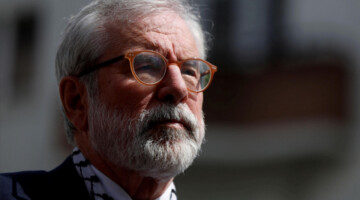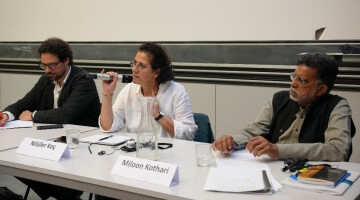On Wednesday, the verdict in the trial against the Kurdish activist Mehmet Çakas was pronounced at the Celle Higher Regional Court. Mehmet was sentenced to two years and ten months in prison for being accused of membership in a terrorist organization. The defense had previously called for acquittal due to the thin evidence and the political nature of the trial. The announcement of the verdict was accompanied by a rally in front of the court with around 50 participants demanding the defendant's freedom.
Çakas was extradited from Italy to Germany in spring 2023 on charges of membership in the Kurdistan Workers' Party (PKK). The main hearing began at the beginning of September last year. Defense attorney Elberling was disappointed with the higher regional court's ruling and announced that the defendant would appeal: "As is so often the case, the 'activities' that are intended to make our client a 'terrorist' consist exclusively of actions that are, in themselves, totally legal, in particular the organization of demonstrations, as well as participation in funeral ceremonies or the mediation of disputes in the Kurdish community. What was shocking was that the court did not make the slightest effort to differentiate and that it simply used a speech at the memorial service for a deceased PYD politician as evidence of PKK membership."
No individual crime was proven for Mehmet. The verdict is not yet final and lawyers will appeal.
“I have not committed a crime”
Çakas was previously persecuted in Turkey because of his commitment to Kurdish society. During his childhood, he saw how the Turkish state murdered his father and how his and many other Kurdish families' livelihoods were taken away by destroying their villages. Çakas was surprised that he was being persecuted here in Germany in the same way as before in Turkey, even though he had not committed any crime in Germany.
Defense attorney Elberling underlined the political nature of the trial when he concluded: "Ultimately, every Kurdish person who opposes Erdoğan and is committed to the Kurdish population should be condemned. Activists could find themselves under trial because of that, as shown by the Celle Higher Regional Court that condemned Mehmet Çakas as a PKK member."
Reading the sentence, the presiding judge said that, contrary to the defense's assessment in last week's plea, this was not a political trial, but a normal criminal trial. Elberling said that this statement should be refuted by the unconditional will to convict that the court has shown.
"Freedom for all political prisoners"
There were several heckles from the visitors' area in the courtroom. Among other things, people shouted: “Freedom for all political prisoners.”
The rally in front of the courthouse featured several speeches, including from the climate justice group Ende Gelände. "How can it be that the fight for a better future is met with punishment? And how can this be nothing new?" asked Charlotte Schmidt. She pointed to numerous historical examples, such as that of Thoreau, who was imprisoned in 1886 because he refused to pay taxes to a state that tolerated slavery, or Mandela's 27-year imprisonment. Schmidt asked why we don't talk about food shortages, droughts and the war in Rojava instead, and called for action.

